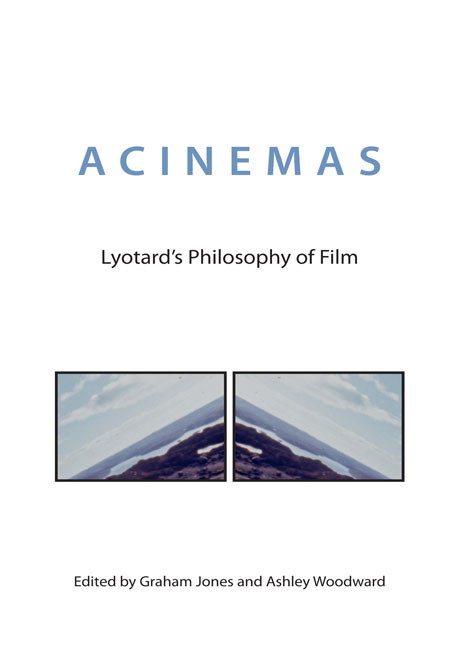Book contents
- Frontmatter
- Contents
- Acknowledgements
- Abbreviations
- Translators’ Note
- I Openings
- II Lyotard's Essays on Film
- III Approaches and Interpretations
- IV Applications and Extensions
- 11 Discourse, Figure, Suture: Lyotard and Cinematic Space
- 12 On Dialogue as Performative Art Criticism
- 13 Give Me a Sign: An Anxious Exploration of Performance on Film, Under Lyotard's Shadow
- 14 How Desire Works: A Lyotardian Lynch
- 15 Aberrant Movement and Somatography in the Hysterical Comedies of Roméo Bosetti
- Appendices
- Notes on Contributors
- Index
13 - Give Me a Sign: An Anxious Exploration of Performance on Film, Under Lyotard's Shadow
from IV - Applications and Extensions
Published online by Cambridge University Press: 23 June 2018
- Frontmatter
- Contents
- Acknowledgements
- Abbreviations
- Translators’ Note
- I Openings
- II Lyotard's Essays on Film
- III Approaches and Interpretations
- IV Applications and Extensions
- 11 Discourse, Figure, Suture: Lyotard and Cinematic Space
- 12 On Dialogue as Performative Art Criticism
- 13 Give Me a Sign: An Anxious Exploration of Performance on Film, Under Lyotard's Shadow
- 14 How Desire Works: A Lyotardian Lynch
- 15 Aberrant Movement and Somatography in the Hysterical Comedies of Roméo Bosetti
- Appendices
- Notes on Contributors
- Index
Summary
The questions that arise when transcribing performance art onto film are fraught with anxiety and uncertainty, aspects of which also dogged this chapter's first iteration. It is important, therefore, to foreground these difficulties of translation in the present article and to apologise for the difficulties it may present to the reader. When giving a presentation it is bad practice to begin with an apology, but that is exactly how I began when I first presented this paper. It was at a conference,1 the premise of which was exciting, and it seemed to fit with what I had been looking for: a way to take my research forward into a new terrain, away from that which has become perhaps a little too familiar to me over the last seven years or so.2 And yet, when it came to the crunch – putting pen to paper, or rather fingers to keyboard – I found that, far from breaking away from that known territory, I barely left the shore, choosing to undertake a small intervention, a skirmish in the area of performance art, about which I feel most comfortable. And yet, in doing so I felt uneasy the whole time, which brings me back to my apology for apologising.
Why shouldn't you apologise at the outset of a presentation? Because it makes the audience feel uneasy? Because it undermines the position of (albeit temporary) authority given to the speaker? Because it betrays the trust of the host, shuffling uneasily in his chair, doubting the confidence exercised in extending the invitation? Is it then that in declaring my anxiety I might make you anxious and unsettle the expected proceedings? Particularly if I convey this anxiety not simply through a verbal apology but through other, physical manifestations: my mouth is dry, my body language is hesitant and perhaps you smell or sense the fear which takes over my body. Cinematically we cut to those indexical signs: beads of perspiration on the brow; close in on a slight tremor of the hand.
- Type
- Chapter
- Information
- AcinemasLyotard's Philosophy of Film, pp. 150 - 162Publisher: Edinburgh University PressPrint publication year: 2017



